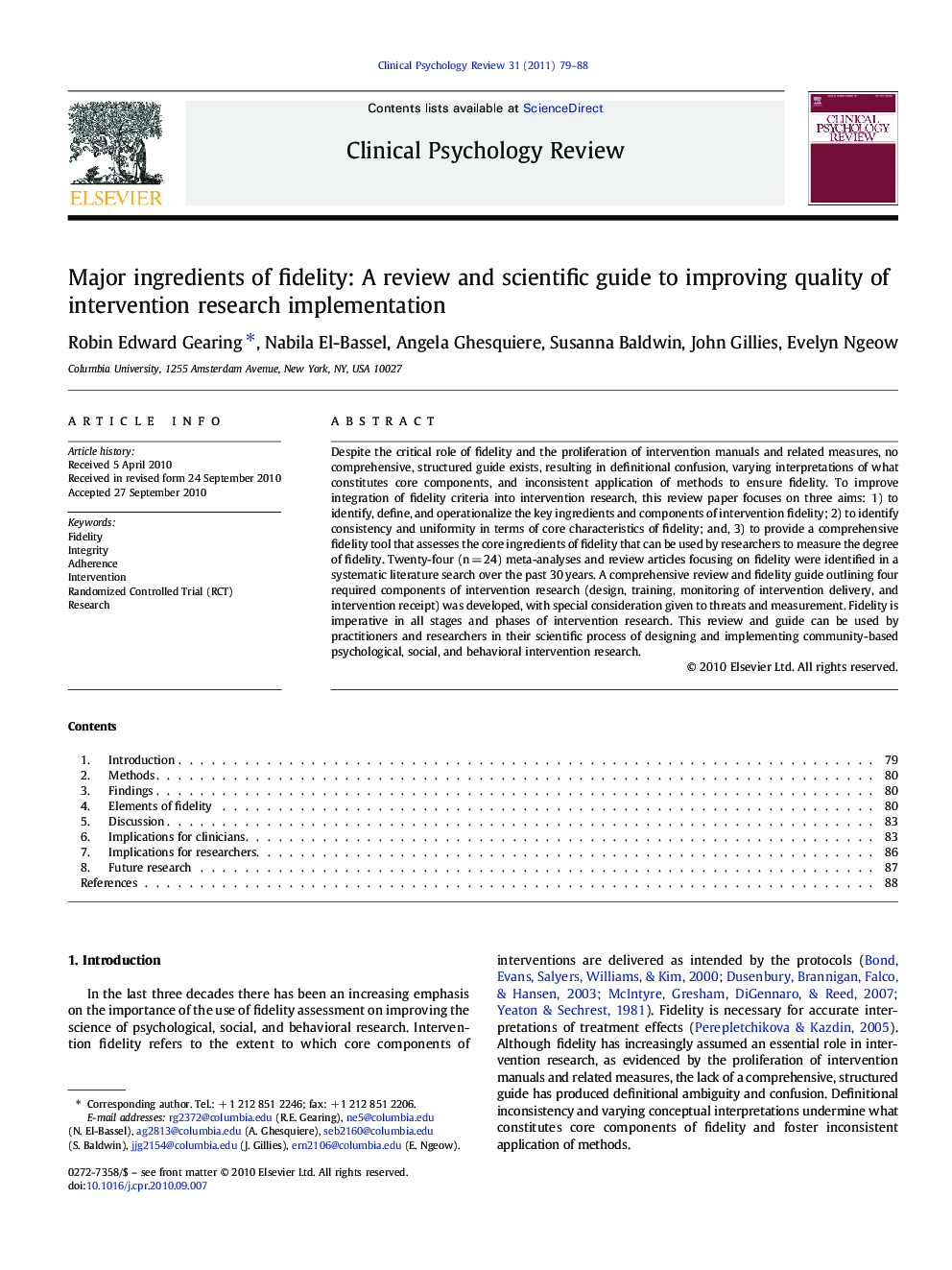| Article ID | Journal | Published Year | Pages | File Type |
|---|---|---|---|---|
| 903671 | Clinical Psychology Review | 2011 | 10 Pages |
Despite the critical role of fidelity and the proliferation of intervention manuals and related measures, no comprehensive, structured guide exists, resulting in definitional confusion, varying interpretations of what constitutes core components, and inconsistent application of methods to ensure fidelity. To improve integration of fidelity criteria into intervention research, this review paper focuses on three aims: 1) to identify, define, and operationalize the key ingredients and components of intervention fidelity; 2) to identify consistency and uniformity in terms of core characteristics of fidelity; and, 3) to provide a comprehensive fidelity tool that assesses the core ingredients of fidelity that can be used by researchers to measure the degree of fidelity. Twenty-four (n = 24) meta-analyses and review articles focusing on fidelity were identified in a systematic literature search over the past 30 years. A comprehensive review and fidelity guide outlining four required components of intervention research (design, training, monitoring of intervention delivery, and intervention receipt) was developed, with special consideration given to threats and measurement. Fidelity is imperative in all stages and phases of intervention research. This review and guide can be used by practitioners and researchers in their scientific process of designing and implementing community-based psychological, social, and behavioral intervention research.
Research Highlights►Definitional inconsistency and varying conceptual interpretations undermine fidelity. ►Fidelity is necessary for accurate interpretations of treatment effects. ►All stages/phases of intervention research, design, and implementation require fidelity. ►This review presents a comprehensive scientific guide that measures fidelity.
